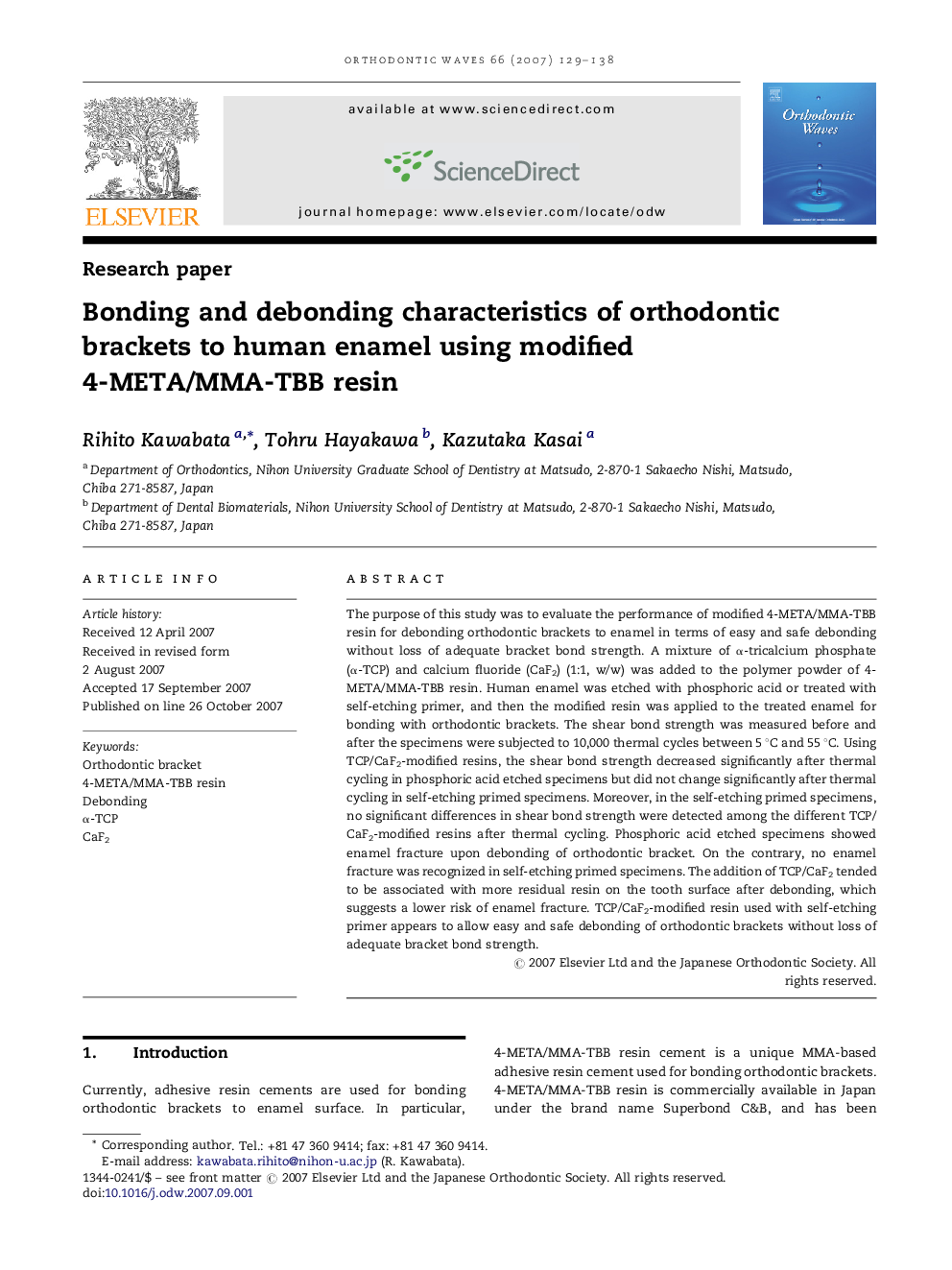| Article ID | Journal | Published Year | Pages | File Type |
|---|---|---|---|---|
| 3170625 | Orthodontic Waves | 2007 | 10 Pages |
The purpose of this study was to evaluate the performance of modified 4-META/MMA-TBB resin for debonding orthodontic brackets to enamel in terms of easy and safe debonding without loss of adequate bracket bond strength. A mixture of α-tricalcium phosphate (α-TCP) and calcium fluoride (CaF2) (1:1, w/w) was added to the polymer powder of 4-META/MMA-TBB resin. Human enamel was etched with phosphoric acid or treated with self-etching primer, and then the modified resin was applied to the treated enamel for bonding with orthodontic brackets. The shear bond strength was measured before and after the specimens were subjected to 10,000 thermal cycles between 5 °C and 55 °C. Using TCP/CaF2-modified resins, the shear bond strength decreased significantly after thermal cycling in phosphoric acid etched specimens but did not change significantly after thermal cycling in self-etching primed specimens. Moreover, in the self-etching primed specimens, no significant differences in shear bond strength were detected among the different TCP/CaF2-modified resins after thermal cycling. Phosphoric acid etched specimens showed enamel fracture upon debonding of orthodontic bracket. On the contrary, no enamel fracture was recognized in self-etching primed specimens. The addition of TCP/CaF2 tended to be associated with more residual resin on the tooth surface after debonding, which suggests a lower risk of enamel fracture. TCP/CaF2-modified resin used with self-etching primer appears to allow easy and safe debonding of orthodontic brackets without loss of adequate bracket bond strength.
